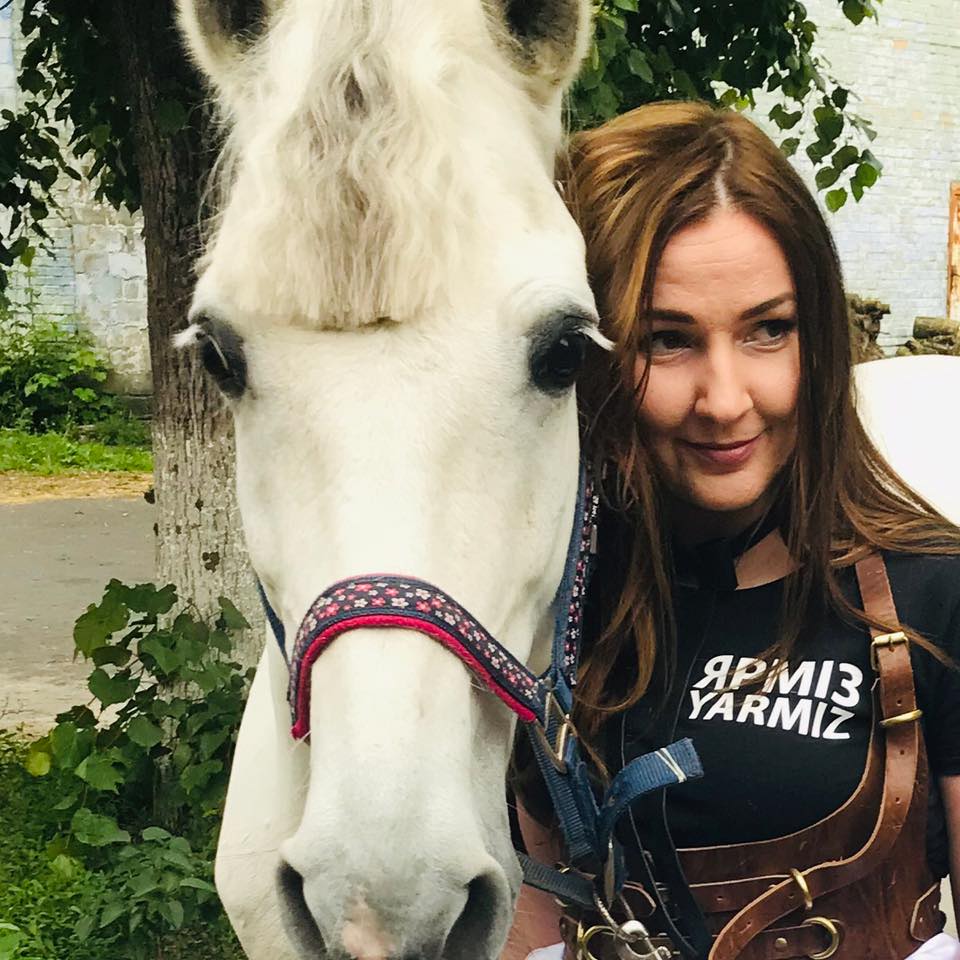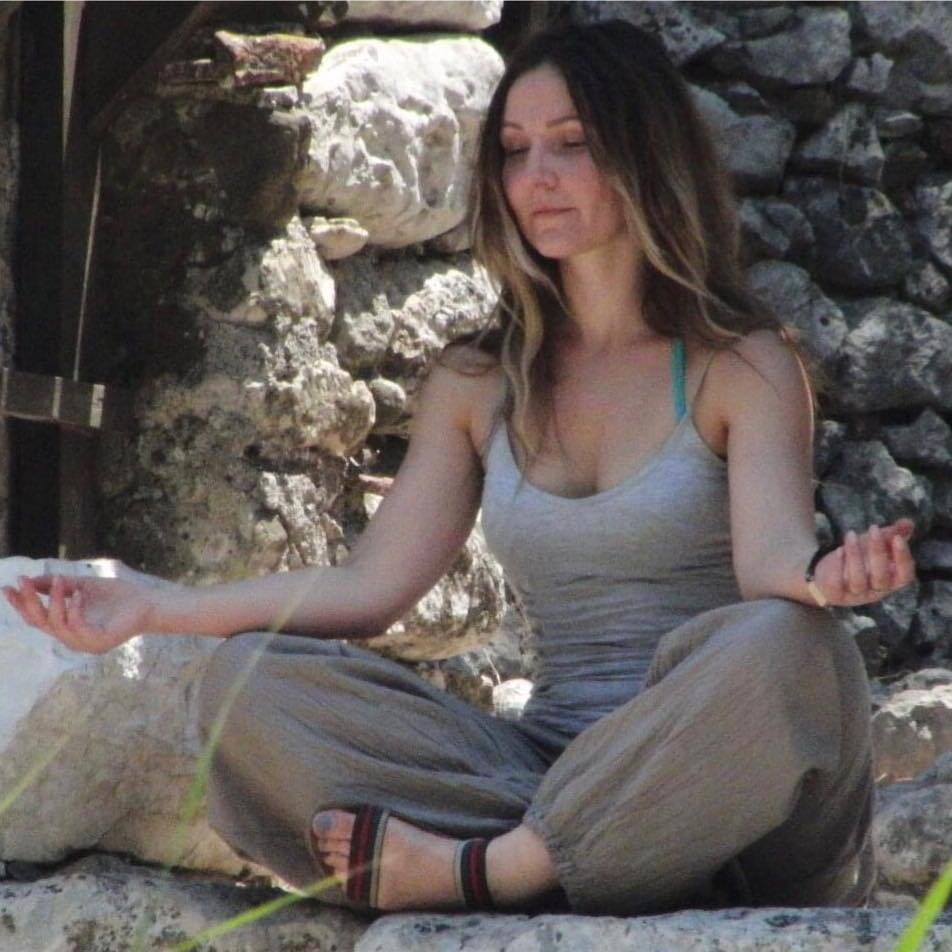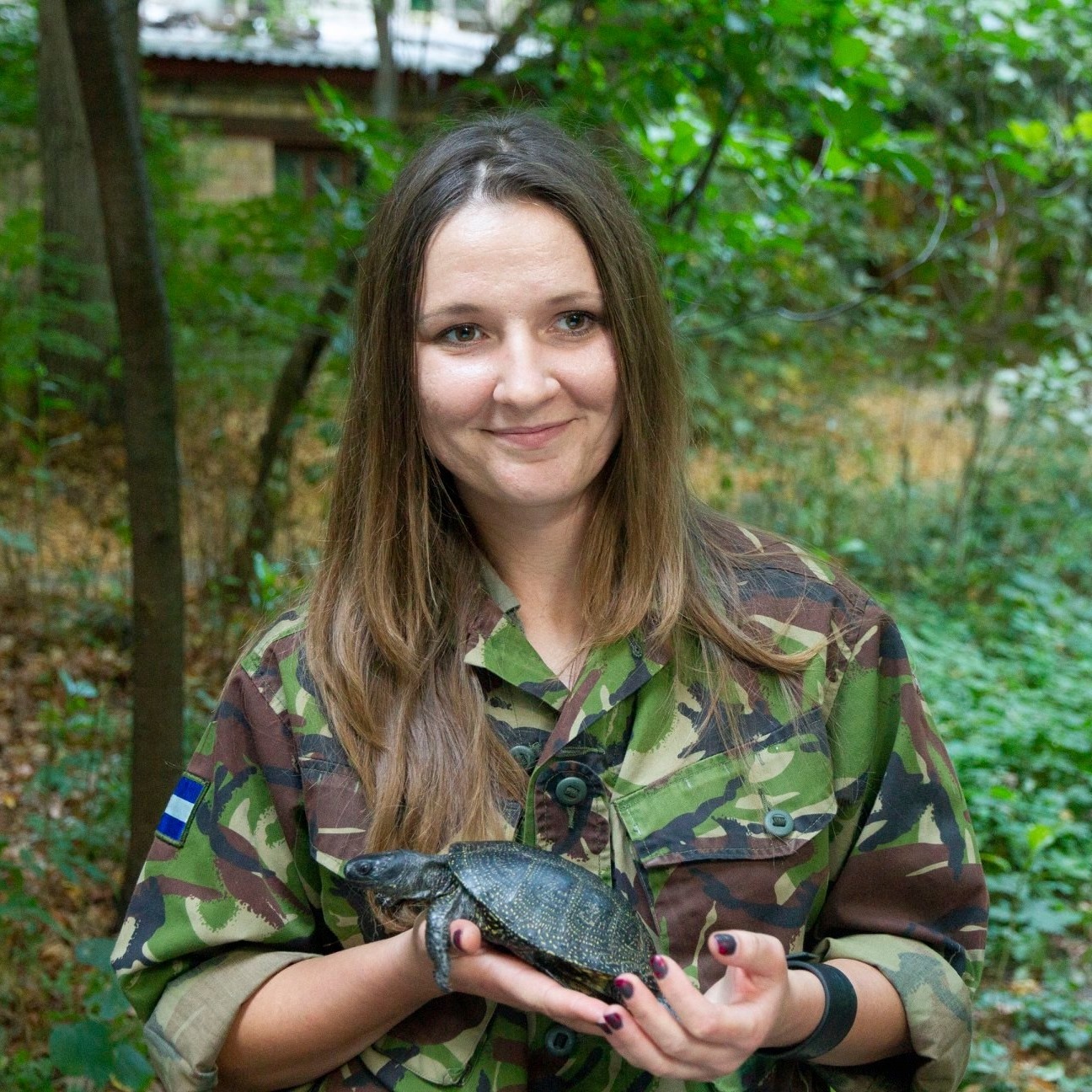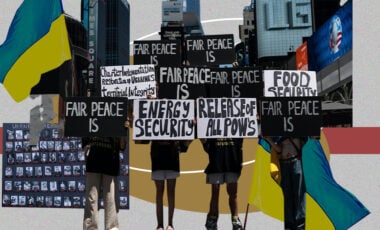Ministry of peace for veterans. Where to look for rehabilitation after war
A participant in hostilities, Olena Koshelieva, works at the YARMIZ Rehabilitation and Re-adaptation Center for participants of the anti-terrorist operation (ATO) and joint forces operation (JFO) participants and explains what post-psychological help is, who needs it, how she managed to rehabilitate herself after her return, and who helped her.
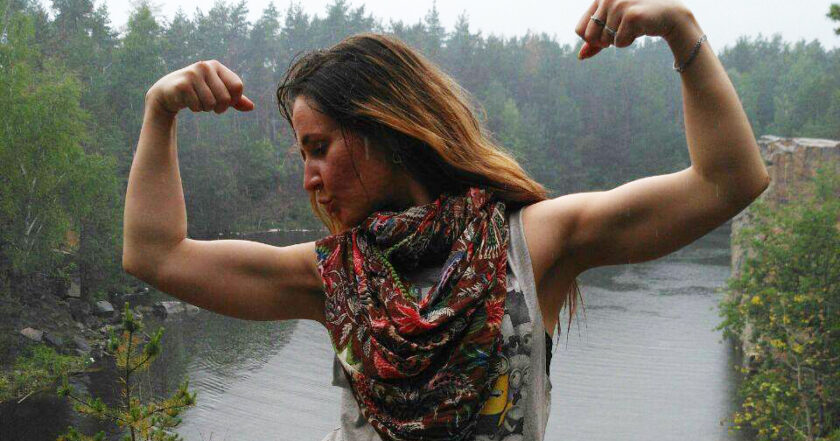
"I have been a participant in the hostilities directly since 2014. I was part of the Donbas battalion: these were the events in Ilovaisk, including the events of the 'green corridor.' And these were quite traumatic events for many. What you are going through, all this trauma, isn't visible right away. Sometimes my memories popped up and started to 'flood' me. It was difficult. And at that moment, I didn't have the opportunity to go to a rehabilitation center, a psychologist, or paint. There was never a time. You know it is when you are afraid to miss some significant event, and you are not up to that, not rehabilitation. I want to do what I did and be in the war. That is why I did not have rehabilitation—I'll tell you more—I still haven't recorded my shell shock as trauma. There is no certificate and no insurance policies. They told me: 'Girl, where could you get it from?' Indeed, where can you get it from during the war?" Olena Koshelieva shrugs her shoulders and smiles ironically.
When you look at this woman, it is impossible to imagine what trials she had to go through to talk so easily about the war, physically and mentally traumatized people at the front, and suicide attempts. All these things were in her life, and most importantly, she managed to cope with them. And then more: not only has she learned to cope with challenging conditions but also she's helped others to rehabilitate after traumatic events. But this story needs to be told from the very beginning. Together with Olena, we walk through the floors of the Yarmiz Rehabilitation and Readaptation Center for the ATO and JFO participants, where she shows me the sports and dance halls, the rooms where visitors can be creative and her "Ministry of Peace"—her cozy office with soft chairs and colorful pillows. She tells me about her life when she returned from the war:
"I connect everything that happened to me then and everything that is happening to me now with my participation in hostilities. I had long rotations, and there were many of them, and I was discharged at the end of 2017. After that, I went to Kyiv. I have a friend whose husband was in the Donbas battalion. He died, but we continued to communicate with his wife. At that time, she offered me to live in her house. My relatives didn't pick me up even after Ilovaisk in 2014. Friends did, but they had a lot of things to do, and I didn't have the kind of care that other boys and girls who had returned to their families had.
Before the ATO, I had a small copywriting agency. When I returned from the army at the end of 2017, I tried to return fully to copywriting. But in the end, I realized I was tired of being a copywriter. I just sat down and started writing the book. In general, I began to write it in 2015, but then I reread it and realized that it would be difficult for a person to read it all. Even I had a hard time. That's why I wrote Adult Stories: Interesting Without porn. It's interesting, funny, and even without eroticism, you know, it's a joke.
We lived with a friend, I supported her, and she helped me. We drew, made crazy costumes, and went to Halloween. I sculpted Maleficent's horns for her, and I was a zombie bride with pieces of skin falling off… She and I flew to some places, rested, saw new things, did sports, and took photos. We constantly did something and talked for a long time in the kitchen. We always supported each other, and we developed such a therapy. That's how we pull it through together with her. Now this therapeutic effect is performed by the Center."
How did you know you needed to go to a rehab center?
"Once, I was invited to a class. The group was called Happiness; it's beneficial, like yoga and breathing exercises. I was a complicated case: a lot happened that year, and my husband and I had some problems—we got married, but we live in different countries, and we still can't get together; my mother died in Crimea, and I couldn't even come to the funeral. It was, to put it mildly, not very good. Natalia Prylutska applied me to the group. She once said that the group did miracles with people. And I decided to go there, and I felt better. It calmed me down. That's where I met Yevhenia, the founder of this Center. And somehow, I started coming here and taking psychological training. Yevhenia is very discreet about everything; it felt like you were coming home. I was drawing, sculpting something.
In other words, I found my home here. After all, I missed family comfort because I had already lost one family and couldn't move in with my other family yet. And I'm very social, and people and friends always surround me. I always talk to someone. And here I am at home with my people—volunteers, wives of fallen heroes, and veterans. It's a very safe space for me."
What is the Ministry of Peace?
"I remember moments when I wanted to call someone and felt terrible. But my friends have already heard it ten times, and repeating the same thing so many times is somehow not very good. They are polite to me, and of course, they listen to everything I would say, but in the end, how much can you last?
I continued to go to the Center, and when I felt a little better, I suggested to Yevhenia that I create a Ministry of Peace. It is a service designed so that any person has the opportunity to be heard and to speak out because, from time to time, talking is the only thing a person needs. It works. Many people come to speak to us. Yevhenia supported my idea, and that's how the Ministry of Peace, as you see it, appeared. And it is in demand. It's easy to come here but very difficult to leave because you don't want to because this environment is so comfortable.
There were various cases, including when a person was one step away from suicide but managed to make him stay in this world. After talking, someone went to a psychologist. And someone just started to attend our activities and classes. This includes art rehabilitation, individual psychological consultations, and online projects for people who cannot come or live somewhere in the village. We also consult them because we try to be accessible to everyone in general and not only to residents of the capital.
The Ministry of Peace is the space between the psychologist and the veteran. Not all of us are ready to turn to a psychologist, many are critical of that, but still, there are psychological problems and, from time to time, even crises. These problems need to be solved, but we cannot take a person and shove them to a psychologist or force them to attend sessions or something else. Therefore, we found an option, communication through an equal, a person who, like a veteran and their family, was very close to the war.
We do not say: 'You need to do it. Go to a psychologist.' We don't explain why it's necessary but only encourage this thought, leading to the fact that a person can solve this problem with a psychologist. 'Let's go to a session. Let's take a look. If you don't like it, no one will force you to continue.' We have several options for psychologists who work with veterans. Try to go to that one or to that one. You will find yours. No one is forcing you if you don't like it and don't want to. If a person immediately refuses, again, we do not pressure anyone.
There are other classes, and anyone from our target audience can come, learn English, and draw free of charge. It has a very cool effect. I felt it myself: at first, you don't want to paint, then you put the first dot, the first line, and that's it. You can't tear yourself away, it's like you're talking to paper, and as a result, you have a whole story about what you feel and what is happening to you. All-all-all emotions remain on paper. It works very coolly. One of my brothers has already made it to the exhibition, which will take place after the quarantine."
Pre-psychological support in rehabilitation: what is it?
"Everyone in our Center is at the forefront of needs. The first ones to hear about veterans' demands are our administrators. They welcome, provide advice, and communicate. They are the ones who understand better than anyone what the visitor would like. I, in turn, understand how our visitor feels and their state of mind. Therefore, our task is to offer the person something that will interest them and invite them to a place where they will feel calm and happy. I can listen to the person without asking too much. I will find something touching them and try hard to get the person back. You can call me anytime, and I will always answer.
What I do here is a particular experience and specific knowledge. I found myself in this. It so happened that I was a paramedic at the front. My task is to provide first aid and help under fire. And here, I also have additional psychological first-aid. I have a lot of experience communicating in crises with people in certain states. When we were defeated in Chervonosielske, I discovered the first rule: do not turn on the 'crying mode.' I decided for myself that I would not do that. When I bandaged the wounded, I always communicated with them to understand that a person is conscious, breathing, and alive. That way, I can control their viability.
Sometimes a person calls, already 'standing on the edge,' and then you can't help but believe that they jump; they can jump out of grudge. I also had suicide attempts amid my PTSD when I had critical moments in my personal life. I'm not ashamed to say it anymore because it might save someone's life. But my procrastination and curiosity helped me. I wonder what will happen tomorrow, right?
Now for me, every person is a project. And I enjoy what I do here. When you do what you know how to do, what you love, and when it benefits others, you can't say you're working. I'm just happy to be here."
How does YARMIZ work now?
"YARMIZ started somewhat unexpectedly; it rapidly grew from drawing and dancing into a whole center, something big and powerful. Now we are working on becoming more interesting to veterans to share what we have with everyone. And if this Center did not exist, someone would have to come up with it. In 2017, my friend performed the rehabilitation function for me, and now this role is performed by the Center. You feel better once, and you are like: 'I no longer have PTSD or any psychological problems. I am normal, sleep, love people, and so on.' It doesn't happen like that. Still, you feel bad and give up from time to time, especially women, when emotional states turn into substantial health problems affecting your emotional state.
We are sure that rehabilitation can take place comprehensively with the whole family, so we invite spouses and children of veterans to our classes and events. In this way, we are trying to get to the issue of rehabilitation. If the society surrounding the veteran is not ready to accept them and will not adapt to them, then there will be no effect. Repeated trauma or misunderstandings are possible. All this happens for free, thanks to our friends and veterans.
Now the Center is functioning, but very limited, not deviating from the COVID-19 recommendations of the Ministry of Health. We do not want to risk the health of our visitors or ourselves. And we are not talking about violations. We are talking about risks. We are co-responsible, so we have a limit on the number of people at the events we hold here: no more than nine people, plus a trainer. We quartz the premises, regardless of whether we used them that day. We constantly have wet cleaning. There are sanitizers everywhere. You can wash your hands. We always open the windows to let the air circulate. We record every person who comes to us.
We are preparing for the presentation of our psychologist's book, as well as for exciting eco-quests and the Center's birthday."
How can a person understand they need rehabilitation?
"You understand what's the matter. Here we don't invite anyone to REHABILITATE. We invite veterans to the event. Then the person sees the result after they come and do something. And then decide whether they need to rehabilitate and begin to see it themselves. No one here says, 'Let's rehabilitate you.'
Everyone who needs rehabilitation understands it, but not everyone wants it. For many, rehabilitation is associated with something like this: 'Yeah, you're a psycho. Did you come to rehabilitate? Let's rehabilitate you as a sick person and send you to a doctor or a psychologist. It would be great if a psychiatrist or a neurologist looked at you.' When people are faced with this, they despair. Their only reaction: 'I am not sick. I am not crazy.' This is stereotypical and imposed vision of these specialists. People are afraid that someone will judge them or perceive them as a weakling. We do not have a culture of visiting psychologists.
We offer different directions: do sports, paint, go dancing or yoga, teach English, play quests, come to a movie screening or concert, do psychological training, or do business training. There are no limitations. And then we understand what a person needs. Some will stay, and some will move on. Some like our Center, and some like other centers. By the way, we do not compete with other centers because we do the same thing, and it would be strange to compete in who does it better."
What advice would you give those who cannot get into rehabilitation centers?
"If there is no access to the centers, other centers and ours have the option of online counseling. Yes, it is not face-to-face and has drawbacks, but it is better than doing nothing.
I recommend an excellent book by Andrii Fomenko, Resources Of Confidence: Stories On The Brink Of War. You can order it from us for free. We plan to distribute it throughout Ukraine among combatants, public organizations, veteran centers, military units, co-working spaces, etc. So, there are described practices that can help overcome self-doubt, fears, aggression, and other conditions.
It's important not to be scared to visit psychologists and not to try to be a psychologist yourself. It is worth remembering that they do not cure but help to decide, find a way out, and contribute to relief. Suppose a psychologist tells you to go to another psychologist, neurologist, or psychiatrist. In that case, it's not because you're evil and they want to get rid of you, but because maybe you need a slightly different specialist.
And draw. Find your resources. Everyone has them, no matter what. Someone knits. This is fine motor skills. It helps a lot. Someone plays musical instruments, sings, goes to the gym and helps others. In any case, there will be an activity that helps to get a resource.
I want to warn against alcohol and psychotropic substances because they do not relieve but worsen the conditions. It gets a little easier when you use it, but the next day, awareness of something only deepens. It doesn't work anyway."


